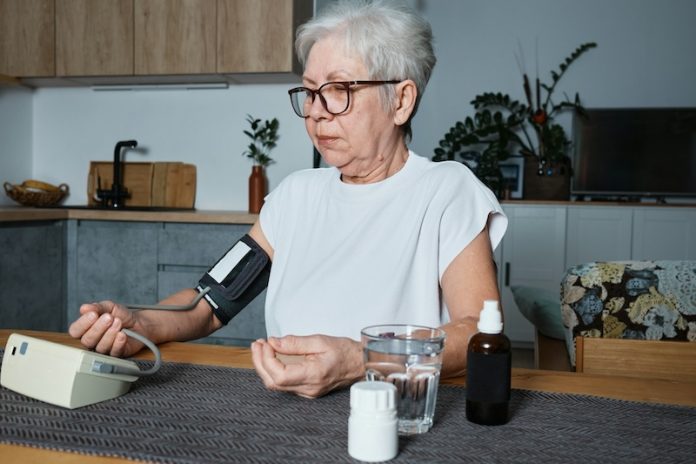
Half of all Americans have high blood pressure, or hypertension, and many are unaware of their condition. High blood pressure happens when blood flows through your arteries at pressures higher than normal.
Blood pressure is measured with two numbers: systolic and diastolic. Systolic pressure is the pressure when the heart pumps blood out, and diastolic pressure is the pressure when the heart rests between beats.
A recent study from Yeshiva University found that some commonly prescribed drugs to lower blood pressure might actually raise it in many patients.
This surprising result suggests that doctors could avoid this problem by measuring the levels of an enzyme called renin in the blood, using a test that is becoming more widely available.
The study tested 945 patients in a workplace antihypertensive treatment program in New York City from 1981 to 1998.
All participants had a systolic blood pressure (SBP) of at least 140 mmHg, which indicates the force of blood against artery walls when the heart contracts. None of the patients had received treatment for high blood pressure before joining the study.
Patients were given one type of antihypertensive medication: either a diuretic or a calcium channel blocker (known as “V” drugs, which lower blood volume) or a beta blocker or an ACE inhibitor (known as “R” drugs, which reduce renin levels, an enzyme from the kidneys that helps regulate blood pressure).
The researchers measured the patients’ plasma renin activity (PRA) and SBP at the beginning of the study and then measured SBP again after one to three months of treatment.
The study found that renin levels could predict which patients would respond favorably to either an R or a V drug. Additionally, the renin test could identify patients likely to experience a “pressor response,” where SBP increases by 10 mmHg or more.
Overall, 7.7% of patients had a pressor response, with the highest percentage (16%) occurring in patients with low renin levels who were given a beta blocker or an ACE inhibitor.
The study’s findings highlight the importance of matching antihypertensive treatment to a patient’s renin levels. Traditionally, variations in patient response to blood pressure medication have been attributed to medication non-adherence or random events.
However, the data suggest that these variations are due to a mismatch between a patient’s renin status and the prescribed drug.
The researchers believe that measuring renin levels can help determine the most appropriate treatment. This approach could be especially beneficial for patients being prescribed antihypertensive drugs for the first time and for those taking multiple medications when one or two might suffice.
For those concerned about blood pressure, it is worth noting studies on the risks associated with cannabis and high blood pressure, as well as effective treatments for slightly elevated blood pressure. Additional research has shown that certain plant pigments can significantly reduce blood pressure.
This study, led by Michael Alderman, was published in the American Journal of Hypertension.
If you care about high blood pressure, please read studies about what to eat and to avoid for high blood pressure, and 12 foods that lower blood pressure.
For more health information, please see recent studies about the connection between potato and high blood pressure, and how to eat your way to healthy blood pressure.
Copyright © 2024 Knowridge Science Report. All rights reserved.



